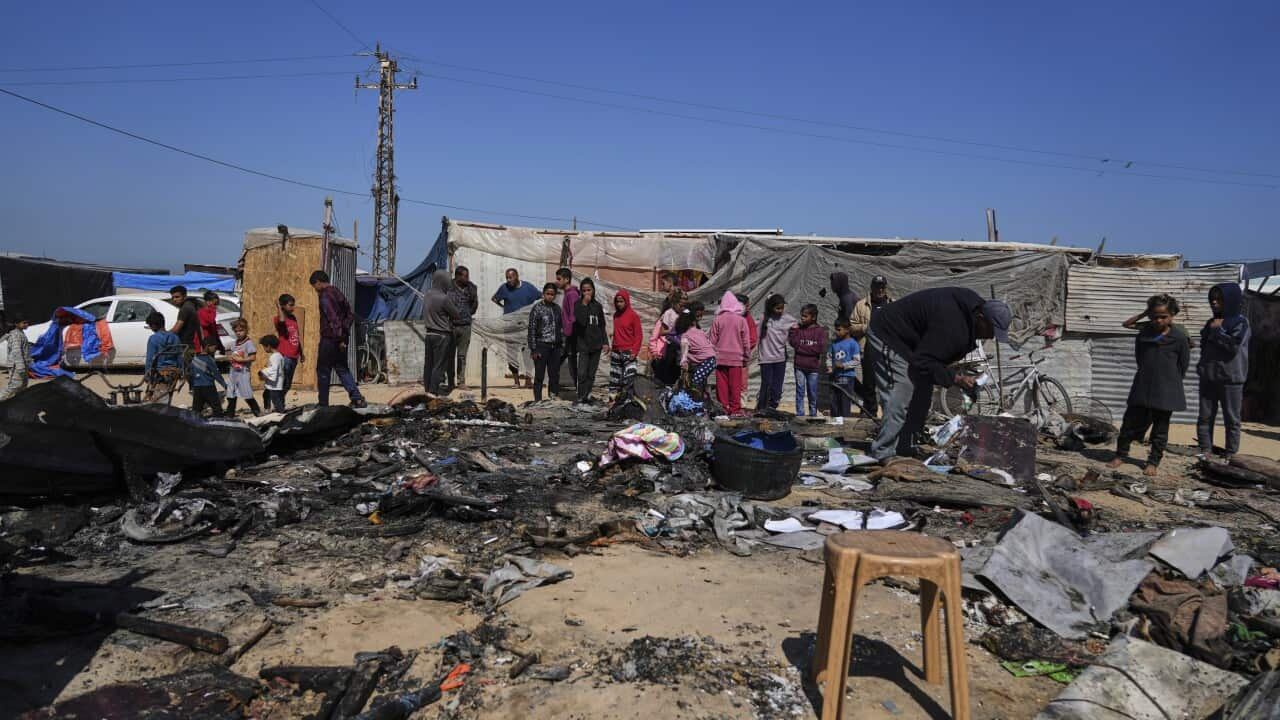Key Points
- Donald Trump has announced a 90-day pause on most country-specific tariffs.
- Trump said he would raise the tariff on Chinese imports to 125 per cent.
- US Treasury Secretary Bessent said “this was his strategy all along”.
In a stunning reversal, US President Donald Trump said on Thursday he would temporarily lower new tariffs on many countries, even as he raised them further on imports from China.
Trump’s turnabout, which came less than 24 hours after steep new tariffs kicked in on most trading partners, followed the most intense episode of financial market volatility since the early days of the COVID-19 pandemic. The upheaval erased trillions of dollars from stock markets and led to an unsettling surge in US government bond yields that appeared to catch Trump’s attention.
“I saw last night that people were getting a little queasy,” Trump told reporters following his announcement. “The bond market right now is beautiful.”
Trump said he would raise the tariff on Chinese imports to 125 per cent from the 104 per cent level that took effect at midnight, further escalating a high-stakes confrontation between the world’s two largest economies.
In the latest twist, Trump said he would suspend targeted tariffs on other countries for three months to allow time for US officials to negotiate with countries that have sought to reduce them.
But he kept the pressure on China, the No. 2 provider of US imports. Trump said he would raise the tariff on Chinese imports to 125 per cent from the 104 per cent level that took effect at midnight, further escalating a high-stakes confrontation between the world’s two largest economies. The two countries have traded tit-for-tat tariff hikes repeatedly over the past week.
Trump’s reversal on the country-specific tariffs is not absolute. A 10 per cent blanket duty on almost all US imports will remain in effect, the White House said. The announcement also does not appear to affect duties on autos, steel and aluminum that are already in place.
US stock indexes shot higher on the news, with the benchmark S&P 500 up more than 6 per cent.
Goldman Sachs cut its probability for a recession back to 45 per cent after Trump’s move, down from 65 per cent, saying the tariffs left in place were still likely to result in a 15 per cent increase in the overall tariff rate.
Bond yields came off earlier highs and the dollar rebounded against safe-haven currencies. Source: AAP / Bianca De Marchi
US Treasury Secretary Scott Bessent said the administration needed time to negotiate with more than 75 countries that had reached out and suggested Trump had used the tariffs to create “maximum negotiating leverage for himself.”
“This was his strategy all along,” he told reporters at the White House. “And you might even say that he goaded China into a bad position. They responded. They have shown themselves to the world to be the bad actor.”
Bessent is the point person in the country-by-country negotiations that could address foreign aid and military cooperation as well as economic matters.
Trump has spoken with leaders of Japan and South Korea, and a delegation from Vietnam was due to meet with US officials on Wednesday.
Trump’s announcement appeared to surprise US Trade Representative Jamieson Greer, who was testifying on Capitol Hill. “I understand it’s 90 days, I haven’t spoken to the president,” he told lawmakers.
“It looks like your boss just pulled the rug out from under you and paused the tariffs, the taxes on the American people. There’s no strategy,” Democratic US Representative Steven Horsford said.
For the latest from SBS News, and .







